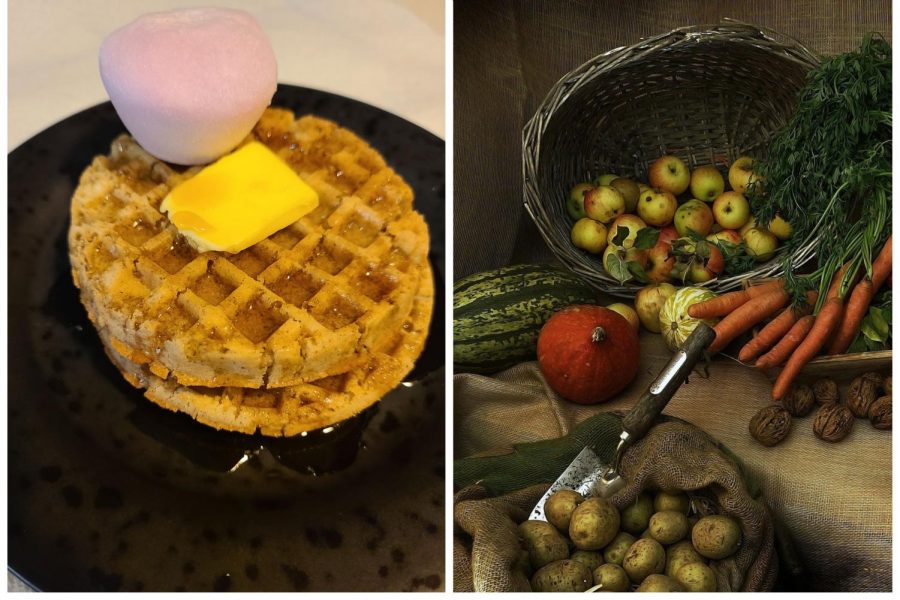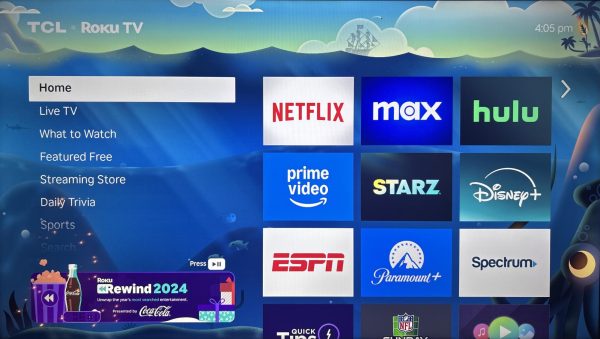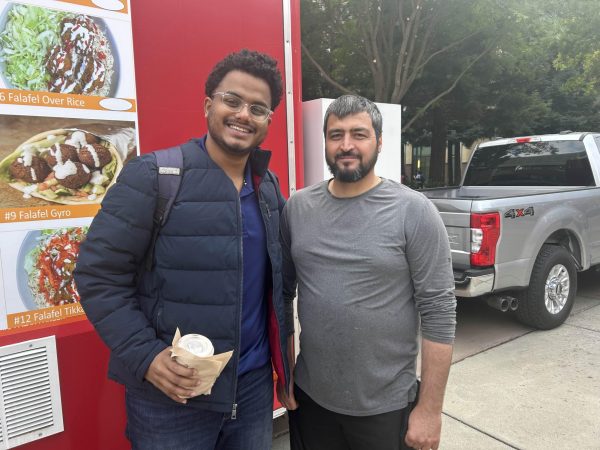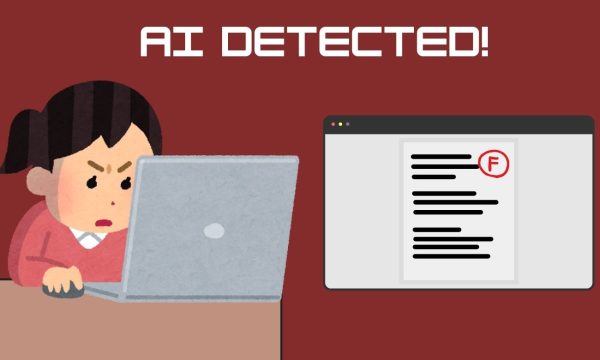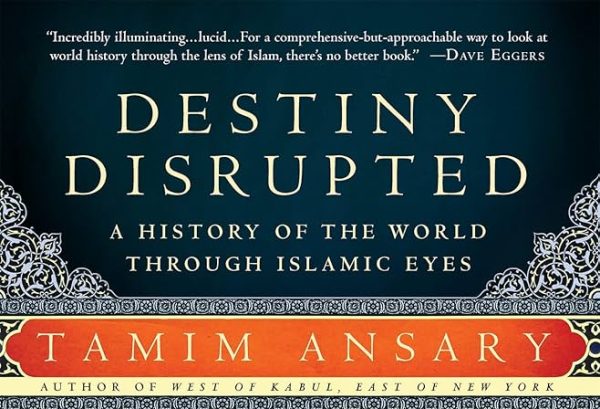‘Waffles + Mochi’ lends hope for a food-secure future
If you have children and a Netflix account, then you might already be familiar with the new series ‘Waffles + Mochi.’ If, like me, you haven’t budged from your juvenile tastes, despite these crazy times begging for your adult capabilities to take action, then the show might offer some food for thought.
Led by former First Lady Michelle Obama and two adorably strange puppets, the series is a fusion of a child’s cooking show, history lessons and cultural appreciation that encourages support for gardens and farms.
With activities like pickling, visiting community gardens and reusing cracked eggshells to germinate seeds, the show provides lessons in self-reliance and nutritional awareness. Easily inspired by this show, I see its values that may help prevent future food insecurities.
Food security is the amount of access one has to healthy, fresh foods. Insecurities are marked by financial struggles, marginalized status, and poor community development like the absence of affordable grocery stores.
Although a children’s show, ‘Waffles and Mochi’ is a call for food security. Hearing that call during my toddler years would’ve made me more excited to eat fresh, whole foods. Persuading adults to watch this show may seem silly, but the lessons validate my lack of food security, and appreciation, growing up.
I grew up in the isolated community of Robeline, Louisiana. My school was almost 9 miles away from home and my parents worked full-time jobs. The nearest grocery store was about 15 miles away. The only farms in the region raised chickens. In 2018, the percentage of residents living below the poverty line was higher than the national average.
Problems I experienced as a child, like malnutrition and barriers to access, afflict college students as well. Despite my struggles, I’ve come a long way from a small village and food desert to being a first-generation student in a college that offers programs like the Hungry Wildcat Food Pantry or Chico State Basic Needs.
When I attended Rogue Community College in Grants Pass, Oregon, and Butte College, programs like that were a saint for my hard times with money. Since my situation got better in recent years, I now occasionally donate vegetables from my garden to the Wildcat Pantry.
Feeding America and the Association of American Colleges and Universities agree that food insecurities can harm academic goals and performance. According to Feeding America, raising children can factor into these insecurities for some students.
The AACU also reported on studies that showed food insecurities to be more common with students of color. One of those studies also found these issues to be more common with community college and first-generation students.
The first episode immediately reminded me of how much easier it was for my childhood community to access frozen treats and TV dinners than fresh, ripe vegetables. In the beginning of the episode, Waffles has only ever heard of frozen food, and eats ice for meals, before learning about a world of fresh, whole foods.
Although I could make my own breakfast sandwiches by the age of 10, those skills didn’t matter on the hardest days of my parents’ struggle. Most of the time, the pantry cupboards were filled with dried, processed foods. Long-term malnutrition resulted in health issues.
The Association of American Medical Colleges reported last year that 54 million Americans experienced food insecurity amid the pandemic, with undocumented citizens and low-income children among those hit the hardest. Inequities in food security parallel inequities in healthcare because those lacking access to healthy options are more vulnerable to health problems.
Health Affairs reported on a connection between poverty, food security and children’s health. Studies found that mostly due to family income, children with food insecurities are more likely to develop health problems.
By the end of the series, the message is clear: health is wealth; food is culture and food unites us. Traveling the world, the characters explore where some of our most popular foods come from, as they gather ingredients for recipes. The appreciation they draw to each ingredient suggests that an open mind is needed when exploring our taste buds, a crucial element in planning meals.
Each episode features a diverse cast and guests, some of whom touch on topics like disabilities and slavery. One episode features a pizzeria where the pizza is made by the hands of deaf employees who sign to each other as they work, which shows the beauty in how intertwined the self can be when feeding people.
Even the show’s website states their motive to spread awareness of food inequities, a fact I was not aware of until after writing this headline.
Community appears to be a prevalent theme as the show promotes appreciation for the hands and cultures that make our food by exploring independent businesses around the world. Oakland even gets a few shout-outs.
The show seems to be an extension of Obama’s Let’s Move! initiative from 2010. The program’s mission was to ensure the next generation’s awareness of and access to balanced nutrition. A key moment of Let’s Move! was the replacement of the once-accepted food pyramid with the more portion-focused “My Plate.”
Conservatives, including recently deceased Rush Limbaugh, criticized the campaign, accusing it of interfering with Americans’ lives. Some even blamed pedestrian deaths on Obama’s encouragement to walk outside for exercise.
One of the campaign’s keypoints entailed healthier options in public school cafeterias. From what I remember as a child in the ’90s, my school’s food was not fresh, diverse, or nutritionally balanced. Even the meals that everyone loved were not healthy enough if you didn’t have a selection of vegetables to go home to.
Many people think of Obama’s Let’s Move! campaign as a war waged on obesity. While I condemn the fatphobic reactions stirred by Obama, I personally saw the program as a way to promote equal access to healthy foods, particularly for less privileged children. Since I fell into this demographic, it painted something different than body image for me.
Food insecurity is one of the most bypassed problems in American society. We tend to think of ourselves to all have the same “first-world” privilege, but the reality is that malnutrition still persists.
Although colleges like Chico State fortunately offer programs for food-insecure students, not all students are aware of available resources, whether they’re programs, nutrition awareness, or kitchen experience. If my generation were exposed to more shows like ‘Waffles + Mochi,’ some of us might’ve even been more inspired to invest in a food-secure future, learning to cook and grow vegetables along the way.
For this show to be bringing these lessons to children in such trying times is a huge step in a media-influenced culture. Had Jim Henson’s “Muppets” taught me to cook and source healthy ingredients as a child, I probably would’ve graduated from Top Ramen much earlier in life.
Shae Pastrana can be reached at [email protected] and @PastranaShae on Twitter.



